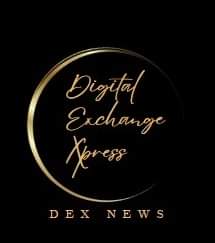ARTICLE AD BOX
Market makers, like trading firm DRW, have been preparing for months to be able to provide the necessary liquidity to ensure sufficient liquidity should the SEC approve bitcoin exchange-traded funds in the U.S.
:format(jpg)/cloudfront-us-east-1.images.arcpublishing.com/coindesk/LP743QL6VVGKPHNDQF4HYHZOLI.jpg?resize=640%2C360&ssl=1)
Predecessors of today’s traders at the NYSE floor in 1963 (Library of Congress)
A flood of investment money looks poised to pour into the cryptocurrency market if the U.S. Securities and Exchange Commission does as expected and approves bitcoin ETFs from a dozen or so firms in the next few days, as virtually everyone – crypto-savvy or not – gets easier access to the world of bitcoin (BTC).
That would force SEC, ETF issuers to scramble to buy potentially tens of billions of dollars worth of the original cryptocurrency to satisfy a surge in demand from mom-and-pop investors (grandma, grandpa and baby, too). The current biggest bitcoin investment vehicle, a relatively hard-to-buy product called the Grayscale Bitcoin Trust, has $26 billion of assets, giving some sense of the appetite for BTC even before the floodgates open.
Is the industry up to the task? Yes, according to key market players, who believe bitcoin trading is liquid enough to easily accommodate such giant purchases from issuers including BlackRock, Grayscale, Fidelity and Galaxy/Invesco. SEC
To make sure that any large amount of capital trades efficiently, two key players have to step in: Trading firms called authorized participants (APs) and market makers.
APs create and redeem ETF shares, directing investor money into and out of the fund; while that may sound mundane, it’s a vital part of ensuring the price of an ETF remains closely linked to the value of the fund’s underlying holdings. With Grayscale’s trust, shares cannot be redeemed. That can lead to there being an oversupply of trust shares, putting downward pressure on their price. And, indeed, the trust has wandered far below its so-called net asset value in recent years – part of why Grayscale wants to turn it into an ETF.
While the work of APs is considered the “primary” market, another key player, market makers, is needed in the “secondary” market, for example on exchanges, where most of the trading is done. Market makers build on the role APs fill by buying ETF shares when others want to sell them, and vice versa. If prices get out of whack, they can earn a profit by trading to nudge them back in line. In some cases, market makers also play the role of the AP.
Several large Wall Street firms have agreed to serve as APs for bitcoin ETFs: JPMorgan Chase, Jane Street and Cantor Fitzgerald. Others are likely.
:format(jpg)/cloudfront-us-east-1.images.arcpublishing.com/coindesk/644ZIZG7NFGGVFW6CM3H3PRBQQ.png?resize=640%2C261&ssl=1) Authorized Participants (APs) made public so far by ETF issuers. (Source: SEC filings)
Authorized Participants (APs) made public so far by ETF issuers. (Source: SEC filings)
Trading firm DRW is one of the biggest liquidity providers in the world. Its crypto division, Cumberland DRW, has been preparing for bitcoin ETFs by onboarding issuers and sourcing bitcoin to make sure it’s ready when orders come in from APs if and when the new investment vehicles are on the market, the company told CoinDesk.
While it might seem like billions of dollars of bitcoin orders would be too much for the market to handle, traders are certain that the market is efficient enough to absorb this kind of trading volume.
“If there is demand, there’ll be supply,” Rob Strebel, Cumberland DRW’s head of relationship management, said in an interview. “I would be surprised if the issuers and regulators would allow this product to launch if it wasn’t confident about being able to source liquidity. I think it’s in everyone’s best interest to make sure that liquidities all lined up, and I’m confident that we’re going to be able to provide the liquidity that’s needed.”
ETFs are appealing products for investors because they’re relatively easy to access. In the U.S., conventional brokerage accounts let customers buy essentially any of the thousands of stocks and ETFs that are listed in the nation. A bitcoin ETF would be just as easy to purchase as Apple’s stock.
Another selling point: They tend to closely track the value of the asset they hold. Gold ETFs, for instance, generally move in lockstep with the price of the gold they own. How? Authorized participants dynamically create and redeem ETF shares to keep the fund’s price tied to the underlying asset.
SEC : The bustling bitcoin market
Over the past 45 days, daily bitcoin trading has averaged about $22 billion on major exchanges, though there have been spikes to around $40 billion on some days, according to CoinMarketCap.com data analyzed by CoinDesk. Observers believe that’s enough to meet demand from bitcoin ETF issuers.
“The market can absorb that new layer of demand for the ETF market,” Laurent Kssis, director at financial services firm CEC Capital and former managing director at 21Shares, said in an interview.
Though the new wave of money is potentially positive for the overall health of the market, it is unclear whether it’ll have an impact on the price of bitcoin itself, which would depend on the demand for the ETF and how fast it comes, she added.
“Not all ETFs will get that kind of traction,” she said. “I strongly believe the investment demand will be skewed towards BlackRock.”
.png)
 1 year ago
6
1 year ago
6








 English (US)
English (US)